French Hostage Held Prisoner By Iran ‘Very Weak’ After Release

A French citizen released by Iran after three years in jail on trumped-up spying charges is “very weak”, his family have revealed.

A French citizen released by Iran after three years in jail on trumped-up spying charges is “very weak”, his family have revealed.
President Emmanuel Macron announced on Friday that Benjamin Brière is going free along with fellow Frenchman Bernard Phelan.
The two men are among an unknown numbers of diplomatic hostages held by the regime.
In a statement on Friday, Briere’s family spoke of being able “to hold him in our arms after three years of hell," but added: “He is, however, very weak, physically and morally, a return to normal life will be long and certainly difficult, but now he is in good hands."
A lawyer for Briere said he had become “extremely weak and frail” after a hunger strike, adding: “If the release wouldn’t have happened by now, Benjamin would be at a major life risk.”
Macron tweeted: "We will continue to work towards the return of those of our fellow nationals who are still detained in Iran."
Brière had been held in Iran since May 2020. The traveller and blogger was arrested for allegedly taking photos with a drone in a restricted area near the Turkmenistan-Iran border and sentenced to eight years in jail.
Philippe Valent, his France-based lawyer, called the espionage charges against his client a "fiction" and his trial "a parody staged by the Revolutionary Guard".
Ties between France and Iran have deteriorated in recent months. Tehran had detained seven French nationals in what Paris described as arbitrary arrests equivalent to state hostage-taking.
In the past decade, Iran's Revolutionary Guard have arrested dozens of dual nationals and foreigners, mostly on unproven allegations of espionage and breach of security.
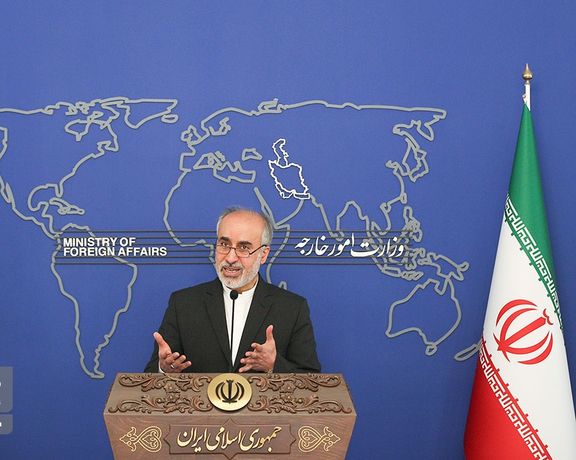
Iran has summoned Iraq’s ambassador in protest at the presence of what it brands “terrorist” Kurdish groups at an official ceremony.
The diplomatic spat exposes tensions between the neighbouring states despite a security deal both signed last month over Kurdish attacks on Iran.
On Saturday Iranian Foreign Ministry Spokesman Nasser Kanaani said Baghdad’s envoy to Tehran had been summoned to “strongly protest” over the presence of Iranian-Kurdish opposition groups at the event on Thursday in Iraq’s Kurdistan region.
The ceremony had been held to inaugurate a cultural center in tribute to the late Kurdish leader Mustafa Barzani.
The spokesman said “movements of some terrorist groups” in the Iraqi Kurdish region is “contrary to the recent security agreement between the Islamic Republic of Iran and Iraq”.
Although the groups were not named, Iran may be referring to Kurdish armed groups such as the Democratic Party of Iranian Kurdistan.
The party advocates the overthrow of Iran's regime and the separation of Kurdistan's northwestern province from Iran.
A deal with Iraq was signed last month in Baghdad by Iran's security chief Ali Shamkhani that aimed to end "completely and fundamentally" Kurdish attacks on Iran and prevent the use of Iraqi borders as a threat.
Last year, Iran's Revolutionary Guards launched missile and drone attacks against Iranian Kurdish groups based in northern Iraq, accusing them of fomenting protests that were sparked by the death of an Iranian Kurdish woman, Mahsa Amini, in the custody of the morality police.
Kurdish parties − including Komala and the Kurdistan Democratic Party of Iran (KDPI) − generally favor Kurdish autonomy within a federal Iran. However, Pejak (the Free Life Party of Kurdistan), an affiliate of the Kurdistan Workers’ Party, or PKK, formed in Turkey but also based in northern Iraq, wants a unified, independent Kurdistan uniting Kurds in Syria, Iraq, Turkey, and Iran.
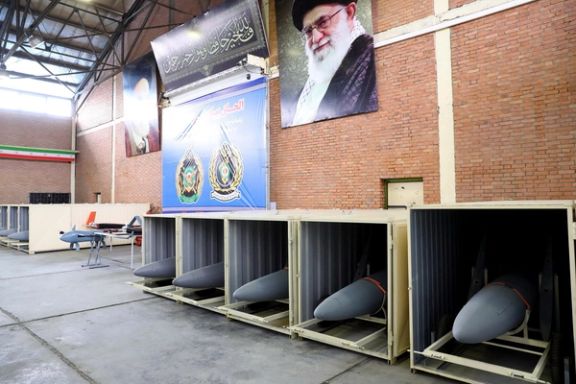
Iran has been accused by Ukraine’s president of selling more than 1,000 drones “and other weapons” to Russia.
Volodymyr Zelensky revealed the extent of Tehran’s sanctions-busting support for Putin's invasion of Ukraine in an interview with Italian media on Saturday.
Ukraine’s leader said: “Thanks to the sanctions, the number of missiles they [the Russians] produce has decreased several times. However, there are such challenges as Iran which has sold them [Russia] more than 1,000 Iranian-made drones and other weapons.”
Forces of the Russian Federation began using drones in its attacks against Ukraine's infrastructure last fall, temporarily depriving millions of Ukrainians of heating, water and electricity during the winter.
Iran first denied it had supplied drones to Russia but in early November foreign minister Hossein Amir-Abdollahian admitted the deliveries, while claiming they were sent before the Russian invasion.
Recent intelligence reports suggest that Tehran may be planning also to supply long-range missiles to Russia.
Ukraine says its air force has shot down more than 500 Iranian drones so far, figures confirmed by Western intelligence.
Iran’s supply of drones to Russia for use in its war on Ukraine has been condemned by the US and its NATO allies and met with sanctions by the US, European Union and other states.
Washington has halted talks with Tehran aimed at resurrecting a deal over Iran’s nuclear programme, indicating that it expects the Islamic Republic’s deliveries to Putin to stop before any further negotiations take place.

A leading reformist politician in Iran says a combination of Iran's weakest government and parliament has created “a regrettable situation for the country.”
Mohammad Javad Haghshenas, a prominent member of the reformist National Trust Party says the situation is like a fire under the ashes. Decision-makers in the Iranian government simply ignore the underlying reasons for last year's nationwide protests and attribute the crisis to the "enemies."
He also suggested that President Raisi should resign and call for early elections.
Haghshenas warned that "any moment, another mistake like what happened in September and led to the death in custody of Mahsa Amini, or a new problematic policy can lead to a new crisis and new waves of protest."
He pointed out that ignoring popular demands and the protests that are still continuing, as well as problems such as inflation, financial corruption, economic problems, red tape, government's intervention in people's private lives and the inefficiency of the government bureaucracy can deepen the ongoing crises.
He added that one of the ways out is returning to the Constitution, which is a document the nation agrees on. However, a major part of the Iranian opposition, and even former high-ranking officials, believe that the current Constitution, designating clerical rule, is one of the root causes of Iran's problems. Many among the opposition want a return to the 1905 constitutional monarchy and others want a secular, democratic republic.
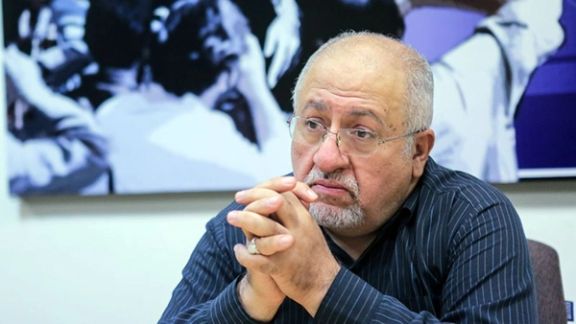
However, Haghshenas says the hard core of political power in Iran [meaning Supreme Leader Ali Khamenei] should pave the way for upholding the Constitution by September particularly because a parliamentary election is going to be held in March next year. He also pointed out that none of the crises that have led to major protests since 2019 have been resolved. Meanwhile, he suggested that Raisi should resign and call for an early Presidential election.
He also suggested that the Guardian Council should do away with its selective supervision of vetting candidates before elections. The Council, a constitutional body indirectly controlled by the Supreme Leader, has the power to disqualify candidates for no clear reason. It used its power in the 2020 parliamentary and 2021 presidential elections to bar hundreds of candidates many of whom had previously served as lawmakers or as senior officials. The result was a massive rejection of ‘reformist’ candidates and handing full control to hardliners.
Meanwhile, Mansoor Haghighatpur, a moderate conservative lawmaker close to Ali Larijani the former Speaker of the parliament charged that a certain political group [meaning the ultraconservatives] want to run the country with a team of only 30 to 40 individuals.
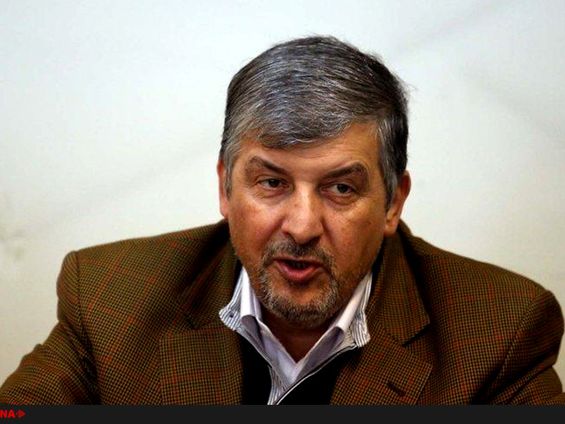
Haghighatpur further charged that the ruling group only believes in its own members and considers other politicians as traitors and spies. His comment followed accusations of espionage against former President Hassan Rouhani and his aides and IRGC figurehead Hossein Taeb's call for putting Rouhani on trial.
He said that this group of 30 to 40 ultraconservatives came to the forefront of political leadership since former populist President Mahmoud Ahmadinejad came to power in 2005 and lately took over the entire political establishment after the 2020 and 2021 elections.
In another development, Iranian traditional conservatives flagship daily newspaper Resalat wrote on Saturday that President Ebrahim Raisi’s administration does not understand concepts such as inflation and repayment of loans. The daily told Raisi and his ministers: "Your daily journey starts from the parking at your home and ends in the parking lot of your office and you do not know anything about the people's problems."
Resalat added: "As a result, you constantly ridicule the people and subsequently the people turn their backs on you." The daily was referring to a statement by Raisi's Welfare Minister Solat Mortazavi who when asked last week how low-paid workers can make ends meet, he replied: “They should save!" Resalat called the minister's reaction "an outcome of ignorance."
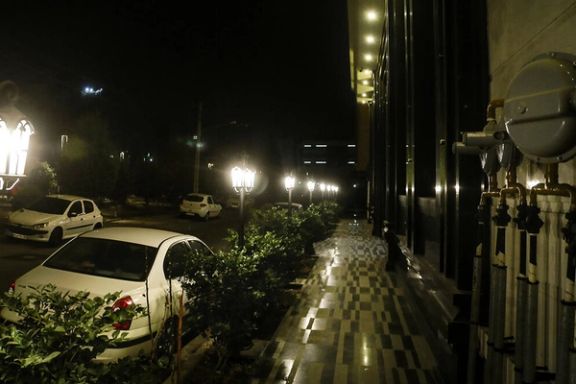
Iran’s electricity usage has leapt by 20% in a year – increasing strain on a national power grid already struggling to meet demand.
The latest figures of nearly 55 thousand megawatts on Saturday are a huge rise on May last year.
While peak electricity consumption is usually expected to start in mid-June each year, rising temperatures have led to an early surge in the use of air conditioning equipment, according to Tasnim news agency.
Consumption during the same period last year was 45,840 megawatts, added the report.
The increase will put further strain on the country's power grid. Iran's electricity sector is in dire need of significant investment, and the country has been struggling to attract foreign investment in recent years.
Power plant capacity and fuel supply are both inadequate to meet demand, and blackouts regularly happen in summer. Even so, Iran exports electricity to Iraq.
Iran has failed to realize its annual electricity growth plan for several years in a row, while consumption continues to grow, in part driven by extremely low prices. Government funding to the energy sector of up to $60 billion a year effectively provides an indirect subsidy to consumers and businesses fuelling this demand.
The country needs at least 5 to 7 percent electricity generation growth annually to address the increase in domestic demand.
Iran on average has 300 sunny days annually but has yet to take advantage of the opportunity for solar power because of the failure to develop the renewable energy sector. Wind and solar power generation have only 0.5% share of total power generated domestically.

A recent scandal over Iranian lawmakers receiving cheap SUVs as bribe has deepened friction between the parliament speaker and the ultra-hardliner Paydari group.
Khabar Online, a news website close to the former moderate-conservative speaker of parliament, Ali Larijani, wrote Saturday that the scandal has turned into an excuse for the two major groups of hardliners in the parliament -- supporters of Speaker Mohammad-Bagher Ghalibaf and Paydari Front lawmakers – to settle political accounts.
In the past few days, Paydari Front lawmakers such as Morteza Agha-Tehrani have been assailing Ghalibaf who describes himself as a neo-conservative. The Speaker says he had known about the bribery and stopped it, while Agha-Tehrani accuses him of doing nothing to stop it and failing to offer convincing explanations since the news broke out last week.
Ghalibaf’s supporters and Paydari, which seeks the establishment of a traditional Islamic government, have also been threatening each other of revelations about other corruption cases.
“Agha-Tehrani’s interview displayed that your group is not after transparency,” pro-Ghalibaf lawmaker Mojtaba Tavangar wrote in a letter to Paydari Party secretary general, Sadegh Mahsouli, Friday and alleged that some Paydari lawmakers had also been among the recipients of the SUVs.
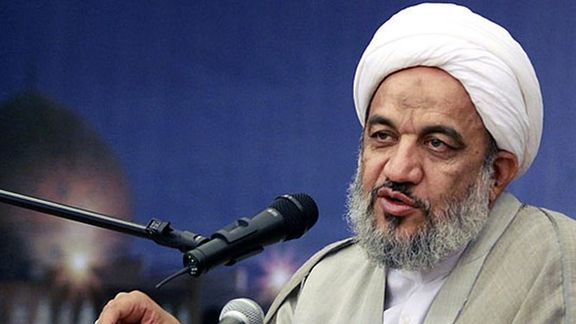
Over seventy SUVs were offered to the lawmakers at a lower price by the ministry of industry ahead of lawmakers’ discussion of a motion in December last year to impeach former minister of industry, Reza Fatemi-Amin for his “inadequate performance” including failure to control rising prices for domestically produced vehicles, their low quality, preventing competitive imports, and corruption in the industry.
After the impeachment drive failed, lawmakers planned another motion in April, which eventually succeeded.
Ahmad Alirezabeigi, the lawmaker who blew the whistle two days before the the second impeachment, claims he only meant to combat corruption and had no hidden agenda when he disclosed the bribery by, or on behalf of the minister.
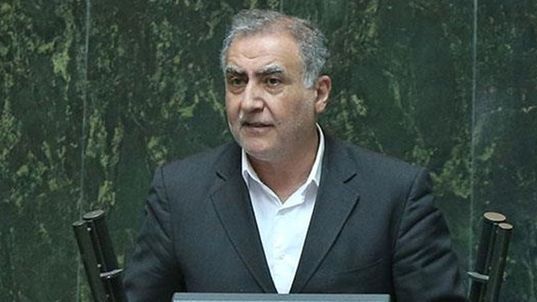
“Some people gain privileges on various excuses to compromise and undermine the supervisory duty of the parliament,” he said Wednesday while calling such bribery a “tradition in the parliament” to prevent impeachments.
“I have nothing to do with the opportunism [of others] which is related to the elections,” he told Khabar Online, adding that “the two groups of lawmakers have waged a war over power to get more seats [for their respective factions] in the upcoming elections.”
“The speaker must transparently announce what measures he took against the unlawful payment to some [lawmakers] if he claims that he found out beforehand and stopped it. What measures were taken against the offenders? To which court were they referred to?” he asked.
In recent years car imports have been largely banned due to the shortage of hard currency. This has increased demand for domestically produced vehicles purchasing of which requires signing up and paying reservation fees. There are often long waiting lists due to the high demand in the market.
Fatemi-Amin was the first minister in President Ebrahim Raisi’s cabinet to be impeached. After initial denials by him and other officials, he was eventually sacked by the parliament on April 30.